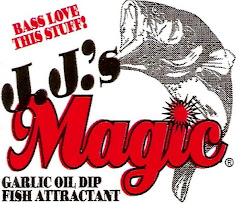I had a post yesterday called “Was the Classic unsafe?” I talked about the anglers using the new Lowrance Radar, and perhaps relying on it far too much. My friend Tyler weighed in on the subject as well with his post “A Foggy Situation”.
I had the chance today to talk with an angler who was in the Classic and made those long runs to Venice on day one and two. Dave Wolak was one of the anglers without the radar. He runs Humminbird electronics and did not have the option, like those running Lowrance products.
Dave told me he trusted his eye over the radar, even if he had the radar he would not have blown thru the fog. When he got to fog he either idled thru it or went at plowing speed (10 to 12 mph). When he came to a clearing he would take off until he reached a spot covered in fog again.
Dave told me: “long runs are always a calculated risk. That being said, I knew I may encounter fog and have to go slow. It’s the subjectivity of the call in the morning. If I am released and encounter fog that is unsafe to travel in anyway, then what is the difference....the difference is that I could have idles half way to Venice in that time. Also, that the area the winner was in would not have been beaten by Venice in that particular window of time no matter what time I or other competitors had down in Venice.... and how the stars alligned for the winning location and strategy was just unbeatable.....it’s just a different caliber and strain of fish there and when they are biting it's hard to beat from the river northern strain of Venice fish. But, total 8 hours of time in a tournament with the magnitude of the Classic I feel is essential. You have people qualifying from all over the world with complex strategies and all the competitors want is fairness across the board and objective rules that are not subject to "a call".
The biggest problem Dave pointed out with the fog delay was loss of time on the water. On day two he had 40 minutes to fish and got five fish in that time. Dave said as soon as number five hit the live well he was headed back. He told me about day two more in-depth. When he hit Venice the fog was so thick he didn’t think he could make it back for the weigh-in. He told his marshal that if the fog did not lift he was going to make a call for his truck and pick him up there in Venice and call it a day. He and the marshal with him could just fish for fun until his ride got there. Soon things changed and fog began to lift, he got five keepers and though he could make it back. The rest is history, he made it back didn’t make the cut and never got to fish day three.
Dave had some suggestions about what could have been done. Everyone knew that fog is inevitable in the delta this time of year. B.A.S.S. could have made take off time at 9:00 am when most of the fog burns off, moved the weigh-in time back which would have leveled the playing field for those making the long run.
The time issue was a big deal this year. I think Dave makes a great point. What would have happened if the take off time had been moved back? I want to leave you with this. Radar is not the answer for anglers to run fast down any body of water in fog. Dave told me even if he had ten radars on his boat he would not have done that. He would have used common sense and ran at a safe speed through the fog. All anglers need to use are heads.
Anthony Smith lost his boat over the weekend on a body of water he knows very well when a log floating down stream struck his boat. Radar would not have picked that up. If fog had been added to the equation thing may have been worse. Anthony may have lost his life not just a boat.
No matter how good the technology gets we need to make sure we use common sense and not always rely on the machines……I would hate to have to fight terminators someday!











No comments:
Post a Comment